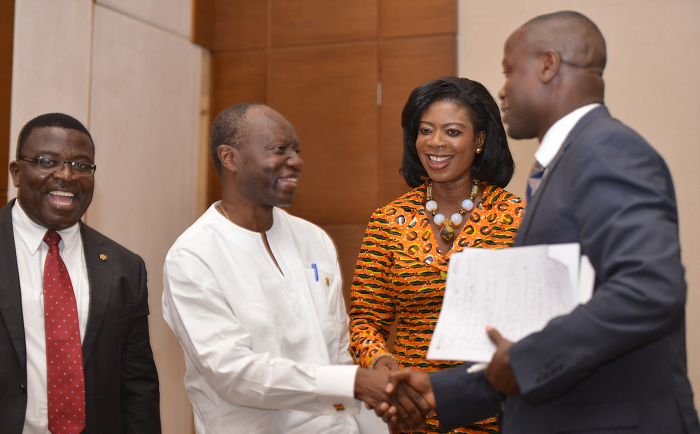
Govt will improve revenue collection to cover shortfalls in tax reliefs
The Minister of Finance, Mr Ken Ofori-Atta, has stated that the country will make up for the shortfalls in tax reliefs by ensuring efficiency in revenue collection, especially by the Ghana Revenue Authority (GRA).
Advertisement
He said tasking the GRA to collect 33 per cent more revenue this year than it did last year was based on the Finance Ministry’s test of the system which led to the discovery of loopholes which could be sealed to increase revenue.
He cited instances where the state was denied the required tax revenues as a result of negligence or human errors.
A case in point is where taxes due on a Final Classification and Valuation Report (FCVR) was GH¢31,000. However, after the taxpayer negotiated to pay GH¢1,000 to an officer, the value on the FCVR was reduced to GH¢8,000 for the same consignment.
Post-budget forum
Speaking at a post-budget forum in Accra, Mr Ofori-Atta said ensuring efficiency in revenue collection and blocking leakages were critical measures the government had put in place to forestall the nearly GH¢1 billion revenue losses that would be occasioned by the 10 tax reliefs announced in the 2017 Budget.
“The efficiency side is where we then turn to the GRA in terms of the capacity to increase revenues. My suspicion is that GRA can do a lot more than is being done; the reason I say that is, I tested it myself,” he stated.
The forum was organised by accounting and advisory firm PricewaterhouseCoopers (PwC) as part of its thought-leadership programmes to help the private sector and clients to better understand the budget.
Areas of savings
Mr Ofori-Atta said the decision to introduce pre-approval for all tax exemptions would cut by about half the current loss of GH¢2.4 billion annually associated with that system.
Again, the government would convert the $2.4 billion annual interest payment on debts into a long-term treasury instrument, which should also help free about GH¢1 billion every year to support government programmes, he added.
The minister said the 2017 Budget was prepared with the private sector in mind, for them to join hands with the government to build the most business-friendly and industrialised economy in Africa that would be capable of creating decent jobs and prosperity for all Ghanaians.
PwC partners
The Country Senior Partner of PwC, Mr Vish Ashiagbor, who presented highlights of the budget, described it as business friendly and ambitious, and urged the Ministry of Finance and government machinery to ensure its strict implementation.
Recommendations
An Associate Director, PwC, Mr Abeiku Gyan-Quansah, who outlined how the budget treated taxes, called on the GRA to introduce an alternative dispute resolution (ADR) to amicably and quickly adjudicate and manage tax conflicts between the collector and the taxpayer.
The PwC also called for the full implementation of the Tax Identification Number (TIN), using provisions which would make TIN a precondition for dealing with institutions such as banks, the courts and other government agencies.



